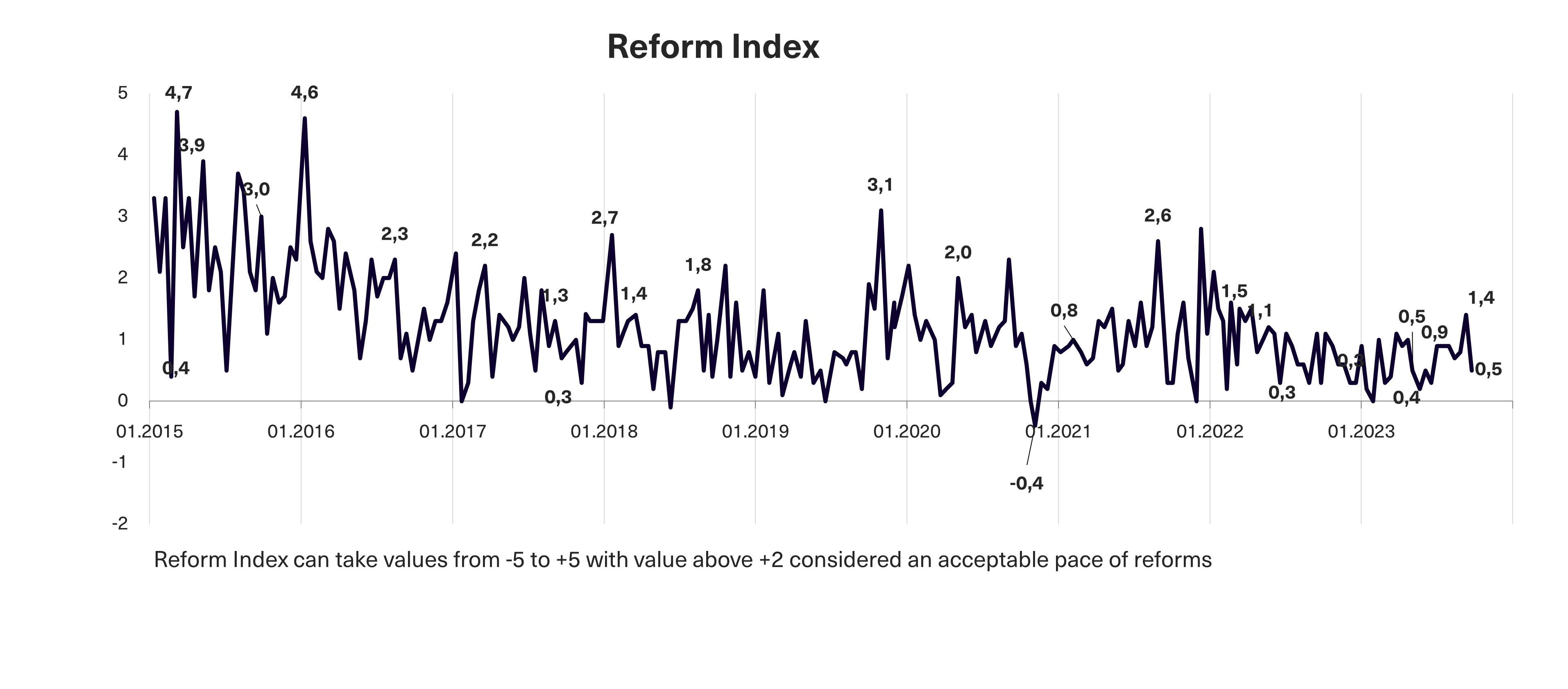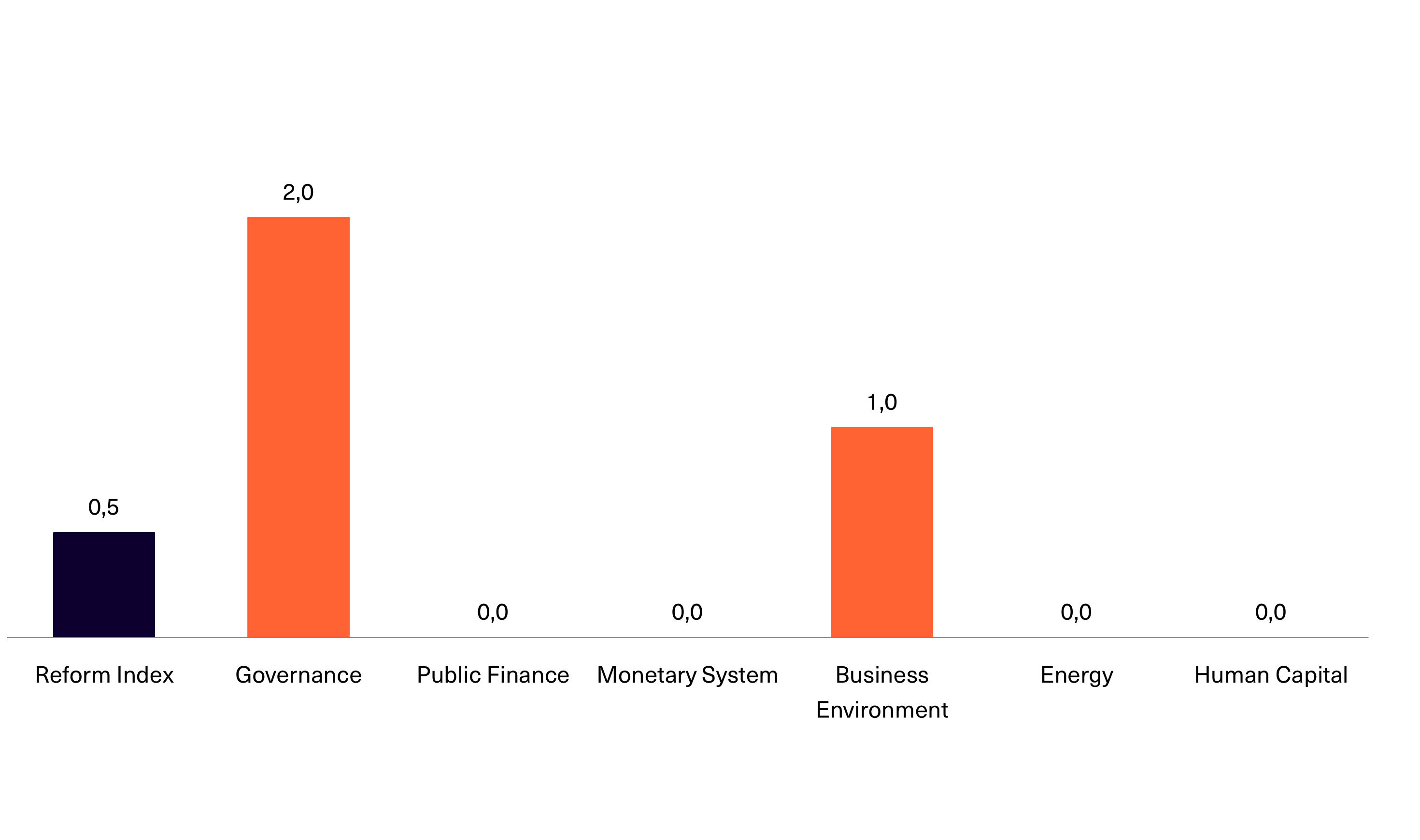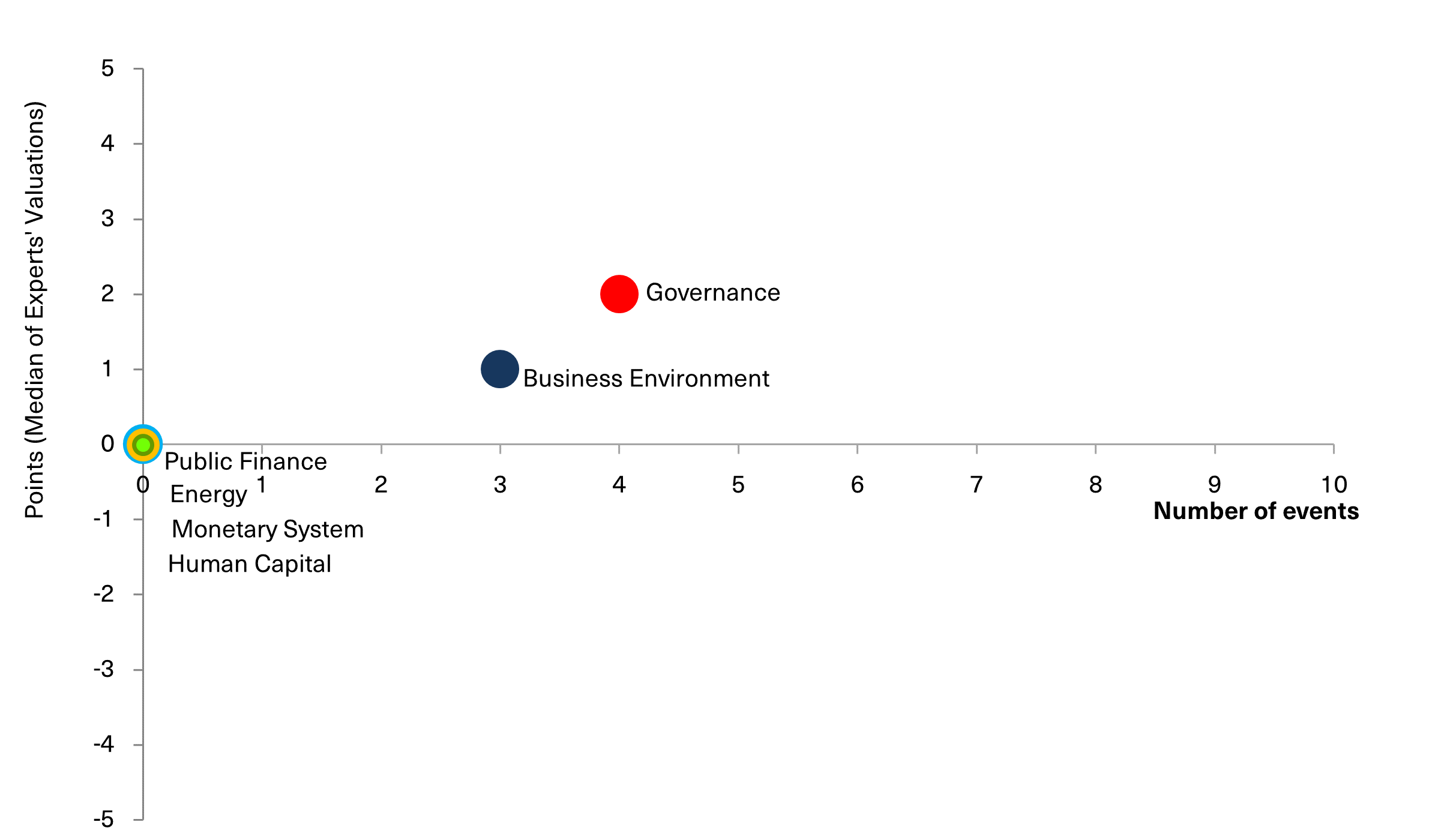The Reform Index’s 221st issue covers the period from September 11 to September 24 and incorporates seven reforms. Two of them received a rating of +2 from experts, which, in our opinion, distinguishes significant reforms from less important ones. These include changes to the Customs Code of Ukraine regarding the standardization of procedures for declaring military equipment and oil products according to EU and NATO standards, as well as new rules for the sale and lease of assets of state-owned joint-stock companies. The overall rating of the Reform Index is +0.5 on a scale ranging from -5 to +5 (in the previous issue, its value was +0.8).
Graph 1. Dynamics of the Reform Monitoring Index
Graph 2. Values of the Reform Monitoring Index and its Components in the Current Assessment Round
Changes to the Customs Code and other laws of Ukraine that harmonize procedures for declaring military equipment and other goods with EU and NATO standards, +2 points
The law aims to facilitate the importing of military and dual-use goods into Ukraine. Specifically, importers are exempt from the requirement to obtain state export control permits for such goods. The law allows the use of forms from EU and NATO member states instead of a customs declaration for incoming shipments.
Additionally, the law eliminates the mandatory requirement for permits to transport medical supplies for the needs of the Armed Forces of Ukraine during training exercises.
Furthermore, the law stipulates that during the import of oil and oil products into Ukraine, importers must provide customs officials with paper or digital documents confirming the quality characteristics of the goods and the entire supply chain of oil products from the manufacturer’s plant to the Ukrainian border.
Information about the Reforms Index project, the list of Index experts and the database of the regulations assessed are available here.
The new rules for the sale and lease of assets of state-owned joint-stock companies, +2 points
At the end of September, the Ukrainian government adopted a resolution according to which assets of state-owned joint-stock companies must be sold or leased exclusively through the Prozorro.Sale electronic trading system.
According to the government’s decision, such auctions will be ascending (English auction) or descending (Dutch auction). Participation in the auctions is open to both Ukrainian citizens and foreigners, except for citizens of Russia. To participate, they need to register on one of the accredited platforms within Prozorro.Sale and submit an application.
Lease agreements that were entered into before the implementation of the new rules will remain in effect until the expiration of their term.
The law on state control of genetic engineering activities and the circulation of GMO products., +0.4 points
The law introduces state registration of GMO products and their labeling according to European standards. It will come into effect in three years, during which Ukraine is expected to align its rules for handling GMOs with European standards. This includes creating a State Register of GMOs and incorporating all products containing such organisms into it. The use of GMOs or products containing them that are not registered in the GMO Register will be illegal.
Previously, GMO products were prohibited in Ukraine, but due to inadequate regulation, some agricultural producers were cultivating such crops because they were easier and cheaper to maintain.
Furthermore, all GMO products must be labeled as “with GMO” or “without GMO” ingredients to allow consumers to make informed choices when purchasing them. The law also establishes rules for the circulation, transportation, and disposal of GMO products, with measures in place to prevent their release into the environment.
Adopting this law was one of Ukraine’s commitments under the Association Agreement with the EU. Its aim is to achieve systemic compatibility between Ukrainian and EU legislation in the field of GMO handling.
Chart 3. Value of Reform Index components and number of events
Reform Index from VoxUkraine aims to provide a comprehensive assessment of reform efforts by Ukraine’s authorities. The Index is based on expert assessments of changes in the regulatory environment in six areas: Governance, Public Finance, Monetary system, Business Environment, Energy, Human Capital.
Attention
The author doesn`t work for, consult to, own shares in or receive funding from any company or organization that would benefit from this article, and have no relevant affiliations






